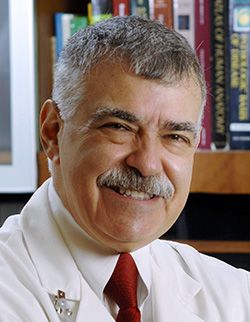Results of an online survey completed by 500 patients offer new insight into attitudes towards and knowledge surrounding biosimilars among patients in the US.
A 16-question online survey completed by adults with rheumatoid arthritis, psoriasis, psoriatic arthritis, and/or inflammatory bowel disease (IBD), data from the study underline the need for greater education on biosimilars, with less than 1-in-4 reporting having basic knowledge of biosimilars.
“This article describes the attitudes toward biosimilars in US patients with self-reported rheumatoid arthritis, psoriasis/psoriatic arthritis, or IBD including those who were currently receiving biologics and those who were not currently receiving biologics,” investigators wrote.1 “Results indicate that many patients with rheumatoid arthritis, psoriasis/psoriatic arthritis, or IBD have knowledge gaps surrounding biosimilars.”
In recent years, few advances have held as much potential for creating equitable access to care as the advances seen in the realm of biosimilars. Still, despite reduced cost and demonstrated noninferiority to reference agents, uptake of biosimilars remains subpar. In a recent survey of providers conducted by Cardinal Health, results revealed considerable differences across medical specialties among clinicians as it pertains to perspectives on the role of biosimilars.2
In the current study, which was funded by Boehringer Ingelheim, a team of investigators led by Allan Gibofsky, MD, JD, professor of medicine at Weill Cornell Medical College, Investigators sought to develop a greater understanding of the patient perspective and attitude towards biosimilars. With this in mind, investigators conducted an online survey using a 16-item questionnaire sent go individuals within the Dynata consumer panel.
In order to receive a survey, patients needed to be at least 18 years of age or older, be a US resident, have a self-reported diagnosis of rheumatoid arthritis, psoriasis/psoriatic arthritis, or IBD for at least 1 year, and not be currently using an infliximab biosimilar. In total, the survey was sent to 18,000 members within the Dynata consumer panel. For the purpose of analysis, investigators established a 500-patient quota, which was stratified based on region and medical condition.1
Patient Knowledge of Biosimilars (By Disease)
Rheumatoid Arthritis:
- 66% reported no knowledge
- 26% reported some knowledge
- 12% reported being unsure
Psoriasis/Psoriatic Arthritis:
- 67% reported no knowledge
- 24% reported some knowledge
- 09% reported being unsure
Inflammatory Bowel Disease:
- 68% reported no knowledge
- 22% reported some knowledge
- 10% reported being unsure
The 500-patient cohort had a mean age of 48.6 years, 44% were currently receiving a biologic, 40% were biologic naive, and 16% reported previous biologic use. Of those receiving biologics, 68% were on TNF inhibitors. Among these patients, more patients with psoriasis/psoriatic arthritis than with other conditions used adalimumab, more patients with rheumatoid arthritis used etanercept, and more patients with IBD used infliximab.1
Upon analysis, results indicated 66% of respondents had not heard of a bio similar, 24% had, and 10% were unsure. Further analysis indicted current biologic users were more likely than their counterparts to have heard of biosimilars (38% vs 12%). Among current biologic users, 43% reported being willing to accept a switch to a biosimilar, 32% were unsure, and 26% did not want to switch. Among those unwilling to switch, 51% reported concern about side effects, 42% reported concern about financial support, and 40% reported concern about efficacy.1
When examining concerns among patients who had no knowledge of or were unsure of their knowledge of biosimilars after providing them with the FDA definition of biosimilars, the most cited concerns were side effects (59%), long-term safety (50%), and being unfamiliar with biosimilars (46%). Investigators also highlighted 51% of respondents indicated a pharmacist-level substitution of an interchangeable biosimilar was acceptable with notification.1
“These findings indicate that patients would benefit from educational programs to help them understand biosimilars and the increased treatment options they provide,” investigators noted.1
References
- Gibofsky A, Jacobson G, Franklin A, et al. An online survey among US patients with immune-mediated conditions: Attitudes about biosimilars. J Manag Care Spec Pharm. 2023;29(4):343-349. doi:10.18553/jmcp.2023.29.4.343
- Pine L. Bruce Feinberg, do: Differences among specialties in biosimilar uptake. HCP Live. https://www.hcplive.com/view/bruce-feinberg-do-differences-among-specialties-in-biosimilar-uptake. Published March 20, 2023. Accessed April 11, 2023.






